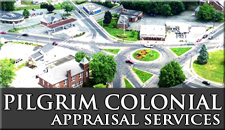2025 Massachusetts Housing Market Forecast: What Buyers, Sellers, and Appraisers Need to Know
The Massachusetts housing market in 2025 is shaping up to be one of cautious growth, tighter inventory, and shifting buyer power. With prices continuing to edge upward but interest rates and supply weighing heavily on affordability, both buyers and sellers should enter the new year prepared. Here’s a detailed look at where the market is headed—and what it means for appraisals across the state. Home Prices: Steady but Slowing Growth According to the Massachusetts Association of Realtors (MAR) and recent market outlooks, home prices statewide are expected to grow by about 2% in 2025, compared to larger gains in previous years. >> Statewide Median Price (2024 baseline): ~$580,000 for single-family homes >> 2025 Projection:~$590,000–$600,000 range >> Boston Metro: Median home values around $750,000, with some neighborhoods pushing higher For appraisers, this means contract prices may outpace cost approaches in new construction, but the appreciation rate is modest compared to pandemic-era surges. Inventory: The Real Challenge Inventory shortages remain the biggest story. New listings dropped by 13.7% in Greater Boston in February 2025, with Worcester County (-25%) and Hampden County (-23%) seeing even sharper declines. For homeowners, this creates competition among buyers and can push appraised values higher, especially in sought-after towns with limited turnover. Interest Rates and Buyer Power Mortgage rates in early 2025 have remained above 6%, cooling affordability but also keeping demand steady as buyers expect rates may climb further before easing. This puts buyers in a careful position: fewer bidding wars compared to 2021–2022, but still competitive when a well-priced property hits the market. What This Means for Appraisals in 2025 >> Expect continued pressure on cost vs. sales comparison approaches for new builds as sales often outpace construction costs. >> Tight supply will likely keep values firm, even if demand softens slightly. >> Hyper-local analysis is… Continue Reading







